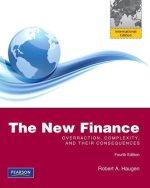Question
1. Identify the statement that is true regarding claiming medical expenses on a personal tax return. a) Medical expenses can be claimed on trailing 12-month
1. Identify the statement that is true regarding claiming medical expenses on a personal tax return.
a) Medical expenses can be claimed on trailing 12-month period ending at any point in current tax year.
b) Medical expenses cannot be claimed on a personal tax return.
c) Canada Revenue Agency (CRA) disallows any medical expenses incurred while outside the country.
d) The amount of medical expenses an individual can claim is 5% of net income.
2. Identify the individuals who qualify to claim the "amount for an eligible dependent" tax credit. Assume no one is living in a common-law relationship.
1-Christine, whose 17-year old son works full-time at a grocery store in the town where he lives, 50 kilometres from Christine. Christine has been separated from her spouse for 2 years and receives no child support.
2-Evina, whose 17-year old daughter attends university in a different province than where Evina lives. Evina is a single mom who works hard to support her daughter who is fully dependant on Evina.
3- Linda, whose 17- year old brother is completely dependent on her although he attends university out of town. Linda is single.
4-Agnes, whose 17-year old grandson lives with her full-time while he attends university. The grandson's parents pay Agnes for their son's lodging, which Agnes truly appreciates. She was widowed 2 years ago.
a) 1 and 3
b) 1 and 4
c) 2 and 3
d) 2 and 4
3. Helen's employer gave her a $250 gift card to a bookstore for her birthday. In addition, she received a $400 glass sculpture in recognition of her 10th anniversary with the company. What amount, if any, will Helen incur as a taxable benefit relative to these items?
a) $0
b) $250
c) $400
d) $650
4. Gina has worked as a financial consultant for 20 years, and owns a rental property in Canada. She is now considering leaving Canada for a new position with an offshore investment firm located in a tax-free jurisdiction in the Caribbean. However, she still has some consulting opportunities in Canada which she feels could retain while living abroad. Gina is wondering what would be the potential consequences to her if she becomes a non-resident of Canada. What should Gina be aware of in this situation?
a) Gina would no longer be allowed to earn income from Canadian sources
b) Gina must sell her rental property if she becomes non-resident
c) Gina would not have to pay tax on any of her worldwide income
d) Gina must pay a 25% withholding tax on all Canadian source income
Step by Step Solution
There are 3 Steps involved in it
Step: 1

Get Instant Access to Expert-Tailored Solutions
See step-by-step solutions with expert insights and AI powered tools for academic success
Step: 2

Step: 3

Ace Your Homework with AI
Get the answers you need in no time with our AI-driven, step-by-step assistance
Get Started


